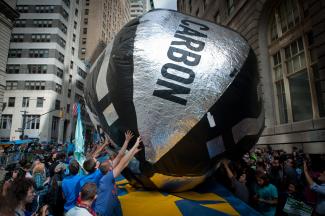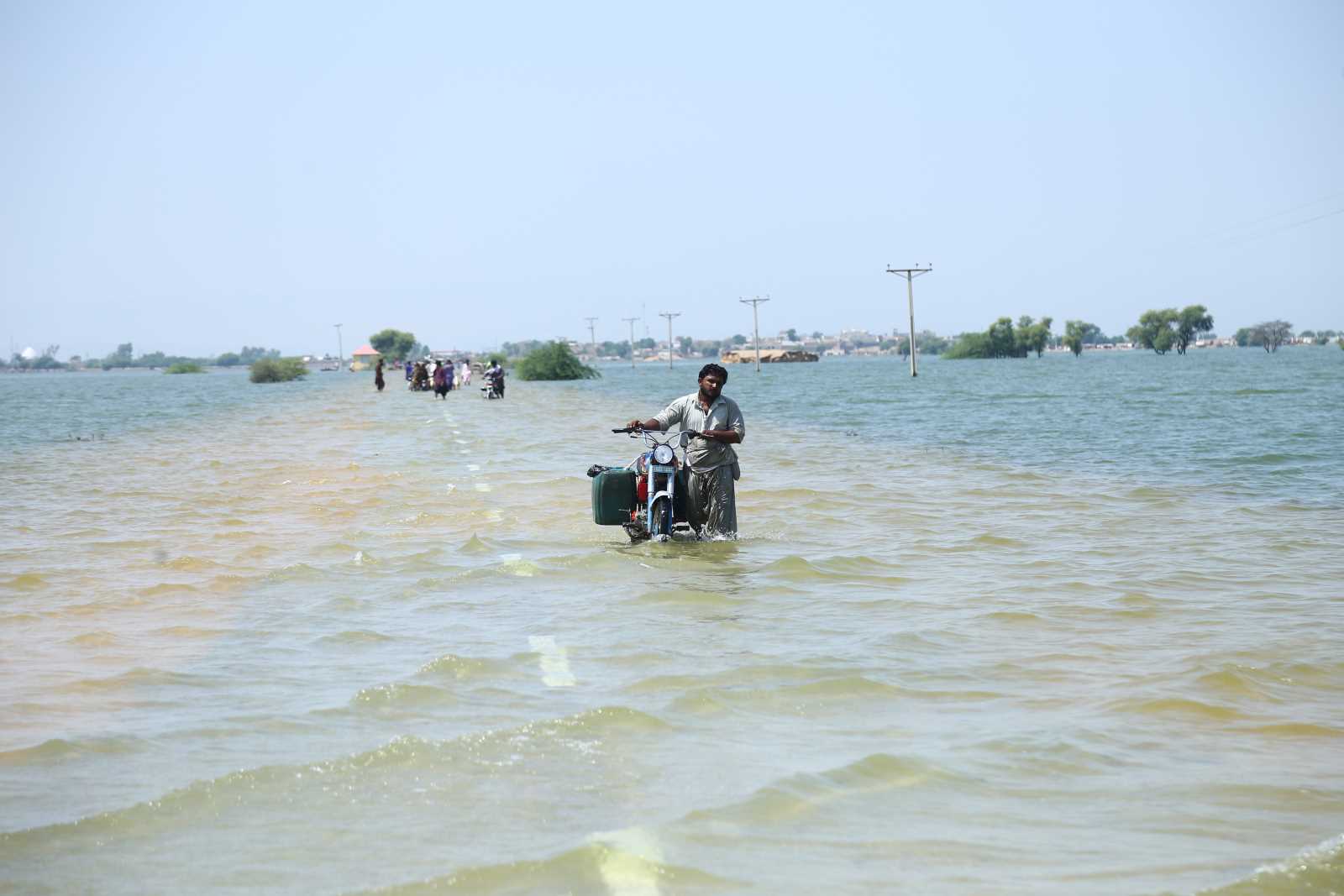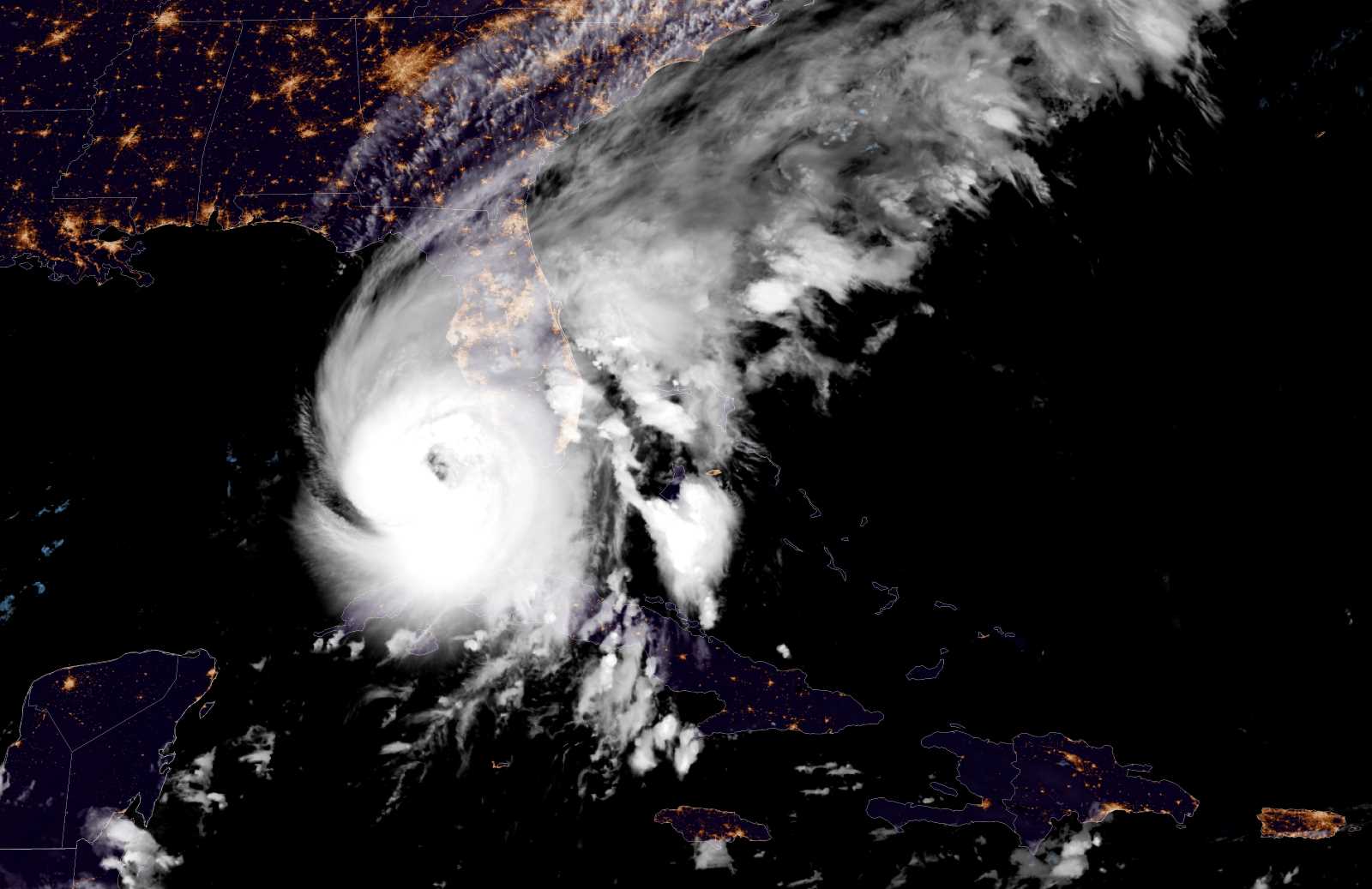Op-ed voices
“The future of the human race”

Inquirer, Manila
The summit was a one-day event for leaders from government, business and civil society, convened by UN Secretary General Ban Ki-moon to “galvanise and catalyse climate action.” The idea was to help ensure that a substantial and legally binding agreement on limiting greenhouse gases will be reached in Paris late next year. (…) Did it work? It is of course too early to tell, but there are disquieting signs. China, now the world’s largest single source of carbon dioxide emissions, was not represented by its new paramount leader, Xi Jinping. Prime Minister Narendra Modi, the leader of the third-biggest emitter, India, did not show up either. The climate change sceptics who run Canada and Australia, Stephen Harper and Tony Abbott, skipped the event too. Even Chancellor Angela Merkel of Germany, who pledged $1 billion to the UN’s Green Climate Fund, missed the summit. (…) The very future of the human race is at stake, and those of us who live in disaster-prone zones are especially at risk. As President Aquino emphasised in his short speech at the UN Climate Summit: “It would not be an exaggeration to say that Filipinos bear a disproportionate amount of the burden when it comes to climate change.”
The Hindu, Chennai (Madras)
This meeting of world leaders, heads of states, finance ministers, business heads and leaders of civil society and community groups was meant to energise global action to address the global warming challenge. Many commitments were made at the summit separate from the formal negotiation processes. For instance, countries of the European Union pledged to reduce emissions to 40 % below 1990 levels by 2030. Seventy three countries and over a thousand businesses and investors, making up more than half of the global economy, gave their strong endorsement for pricing carbon. Many leaders expressed their support for addressing loss and damage due to climate change and announced a number of initiatives for building resilience. India promised to double its use of solar and wind energy by 2020. A global movement and mobilisation for action that may have seemed impossible even a few years ago, appears now to be gathering force. (…) If future climate impacts are to be reduced to manageable levels, it has become clear that all countries need to shift their development pathways such that global emissions peak well before mid-century. Even this, it appears, may barely be sufficient to provide a fighting chance for avoiding a two-degrees rise in global average temperatures, which is seen by most scientists as a “guardrail” against cascading climate effects.
Mail and Guardian, Johannesburg
The developing world refuses to accept any agreement that does not hold the developed world – Europe and the US – accountable for the damage caused by climate change happening now. These countries are developed because they burnt fossil fuels, so they should pay, goes the argument. This position is strongly held by island states, which are vanishing below rising sea levels. The island nation of Vanuatu has already started purchasing land in Fiji so it can begin moving its population. But the developed world is broke. And its economies are being overtaken by others, such as China and India. This month China overtook the European Union in its per capita carbon emissions. China is responsible for 29 % of all carbon emissions, the US for 15 % and the EU for 10 %. South Africa is responsible for less than one percent, although it ranks 13th in its per capita emissions.
Le Quotidien, Dakar
Africa must be at the centre of any global climate strategy. The continent must participate actively in the international debate on rising sea levels, tropical-forest destruction, dwindling biodiversity, loss of species, the definition of green obligations and setting a price for carbon emissions. The African continent must be heard because its people are the most-affected victims of the ongoing climate change even though they have contributed least to making it happen. (…) The alarm signals leave no doubt: even global warming below the two-degrees scenario is a serious threat to sustainable development in Africa. Its impacts could undo achievements already made.












